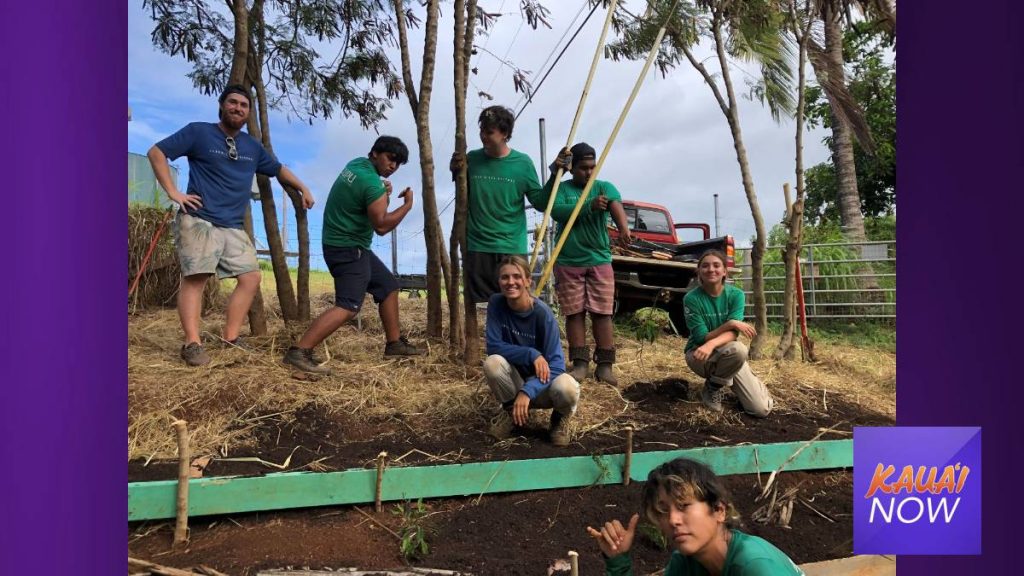Bishop Museum Looking For Aspiring Naturalists

Researchers and content experts at Bernice Pauahi Bishop Museum, in collaboration with community partners, are gearing up to launch the Hawai‘i Master Naturalist Program — a certification that promotes active environmental stewardship through broad science and place-based training, as well as education and outreach in the natural and cultural history of Hawai‘i.
The program’s purpose is to help develop a corps of knowledgeable volunteers capable of providing biocultural education, outreach, and service to benefit environmental stewardship in the community. In addition, the program will help build the capacity needed to address the environmental and biosecurity issues that confront Hawai‘i now and in the future.
Hawaiʻi Master Naturalist Program graduates will be prepared to serve in numerous capacities, not only to bolster Bishop Museum’s efforts to serve as a center for education, outreach, and engagement within the community, but also to contribute to the initiatives of nonprofit, State, and federal agencies charged with the care and conservation of Hawai‘i’s environment.
“Despite having the dubious distinction of being the extinction capital of the world, Hawai‘i is one of the few states that does not have a master naturalist program,” said Kelli DeLeon, Hawaiʻi Master Naturalist Program coordinator. “Hawai‘i is home to nearly half of all endangered species listed under the U.S. Endangered Species Act, and has already lost large numbers of species that were only found in the Islands.”
“To counter this extinction crisis and help protect and restore critical ecosystems, we desperately need to increase the capacity for conservation and resource management in the Islands,” added Dr. Ken Hayes, Bishop Museum director, Pacific Center for Molecular Biodiversity, and co-founder of the Hawaiʻi Master Naturalist Program. “One pathway to building capacity is through development of a volunteer corps with fundamental training in biocultural resource management. Available to all, from keiki to kūpuna, this program offers an effective way for us to fulfill our kuleana to the ʻāina.”
Bishop Museum is targeting fall of 2022 to launch a pilot of the Hawai‘i Master Naturalist Program. Participants will complete 48 hours of coursework spread over eight weeks, meeting one day each week for courses taught by content experts from Bishop Museum as well as its conservation partners. Course material will be supplemented with hands-on experience where master naturalist candidates will join conservationists, resource managers, and cultural practitioners in the field for skills-based experiences and learning opportunities.
Upon completion of the eight-week program, participants will be certified master naturalists, a nationally recognized designation with chapters in many states. This certification will allow master naturalists to contribute to and help cultivate a robust, community-based natural resources volunteer program. Master naturalists are required to complete at least 20 hours of volunteer service and stewardship with the Museum’s partners in conservation and resource management, fostering citizen science projects and public education. Graduates of the program will also have the opportunity to participate in courses on advanced and specialized topics.
Certified master naturalists will partner with collaborating institutions and agencies, including Army Natural Resources Program O‘ahu, Hawai‘i Department of Land and Natural Resources, Hawai‘i Invasive Species Council, the National Tropical Botanical Gardens, The Nature Conservancy in Hawai‘i, Pacific Rim Conservation, Pu‘u Kukui Watershed Preserve, Snail and Plant Extinction Prevention Program, and others to fulfill both the mission and the vision of the Museum and that of the Hawai‘i Master Naturalist Program.
“Much of Hawaiʻi’s unique flora and fauna are facing extinction without significant conservation intervention. The Hawaiʻi Master Naturalist Program will help to build a knowledge base and a reservoir of interested and qualified individuals, increasing the capacity for place-based education, training, and natural resource conservation in the State,” said Dr. David Sischo, wildlife biologist, Department of Land and Natural Resources — Division of Forestry and Wildlife.
Bishop Museum’s Hawaiʻi Master Naturalist Program will be unique among other national programs. As an institution charged with perpetuating the Indigenous knowledge of Hawai‘i and the Pacific, the programmatic approach will be based on a biocultural understanding of the environment — utilizing Indigenous knowledge to better inform an understanding of the environment and bridging this understanding with contemporary science.
“Native Hawaiians and other Pacific Island cultures have long had n acute understanding of how to be responsible stewards of their environment, long before the advent of modern science,” said Brandon Bunag, vice president of public programs and interim director of education at Bishop Museum. “Our aim with this program is to establish an Indigenous worldview as foundational, so that master naturalists trained at the Museum have not only an understanding of the latest conservation practices but also have a renewed respect for the ʻāina.”
Foor more information on the Hawai‘i Master Naturalist Program and how to support the efforts of the Museum, please email hmnp@bishopmuseum.org.



